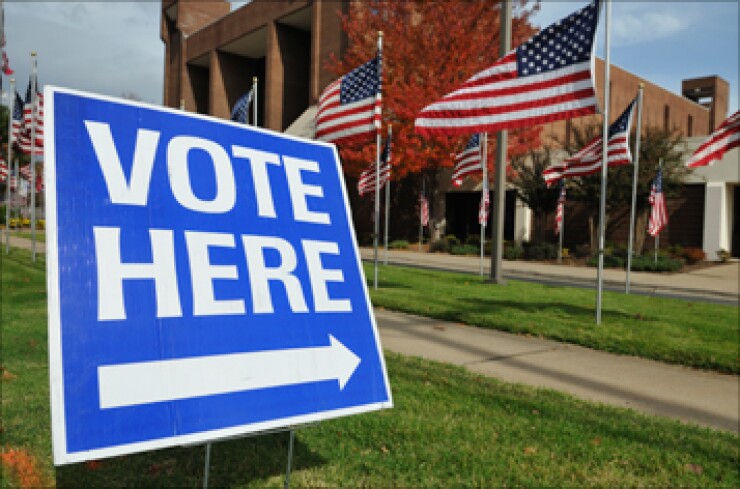Some Detroit-area voters may have to make new arrangements for getting to the polls on Election Day.
The U.S. Sixth Circuit Court of Appeals on Thursday reinstated a ban on certain voter transportation measures, upholding an 1895 law in a 2-1
Two days before the ruling, Michigan Legacy Credit Union had

According to
“It’s very discouraging to me,” Carma Peters, president and CEO of the $244 million-asset credit union, said Friday. “It’s a very political issue [but] we never would have known who was going.”
Lyft would only have had a credit card number to cover the cost of the rides, and no information about ridership would have been communicated back to the credit union.
Peters said Michigan Legacy would still like to do something to encourage voting and help members of the community get to the polls, but with just over a week until the election, she was not sure what that might be.
The court ruled along party lines, with a pair of Republican-appointed judges upholding the ban while Chief Judge R. Guy Cole, Jr., appointed by President Bill Clinton, offered a dissenting opinion.
“My Pollyanna outlook is I want to believe [the court’s decision wasn’t political] but then you sit there and go, ‘Why would you block something to eliminate that and give everybody the opportunity to vote, regardless of where they’re from?’” she said. “Because that was our intent. It does seem like politics comes into it in a small way, because if someone does not have the ability to get to a polling station, why would you not find a way to do that, no matter who they are or where they are? That’s the fundamental democratic process of the United States.”
Ken Kollman, a political science professor at the University of Michigan, called the appeals court’s ruling “part of a dizzying and often contradictory set of court decisions” across a number of states that have frequently struck down partisan efforts either to suppress or boost voter turnout.
“The fight for influencing not how people will vote but who will vote is being waged state-by-state, and sometimes locality-by-locality,” he added. “It is a forum of partisan conflict that we should anticipate to stay active for a long time.”
Michigan Legacy serves the metro Detroit region but not the city itself, and a large get-out-the-vote effort in the region is
“I get that it could look like we were trying to get one particular vote, but…there would be no way I would know who was taking advantage of that," she added.
Peters noted that part of the credit union’s push to get voters to the polls was because democratic governance plays such a part in the cooperative movement.
“We thought what we put together was really community-minded,” she said. “It’s not what your beliefs are, it’s about that you get out and vote. I haven’t really figured out any other ideas yet, but we are always open to making a difference in our community.”





